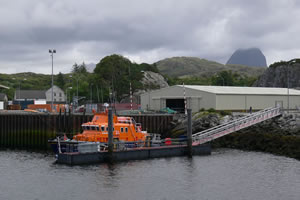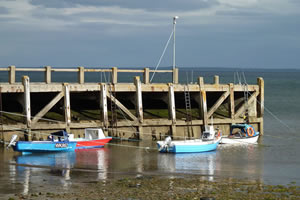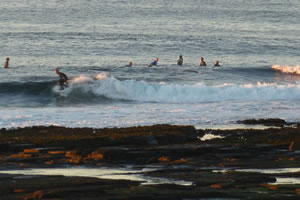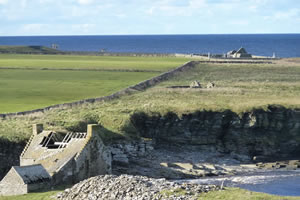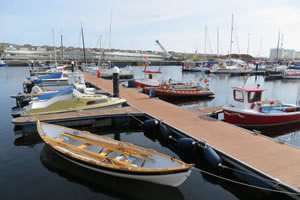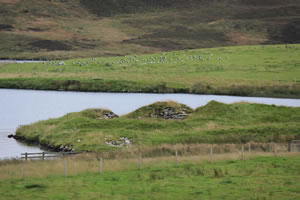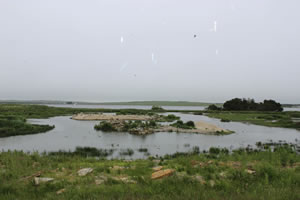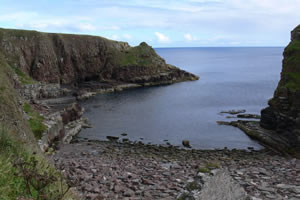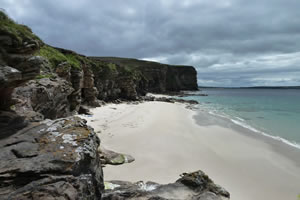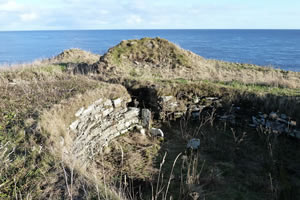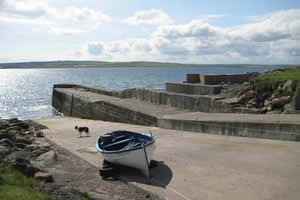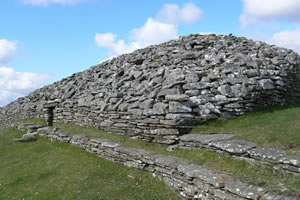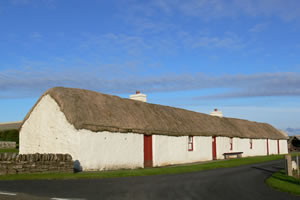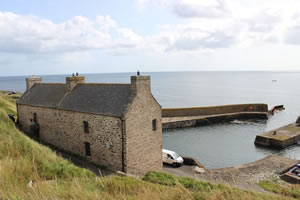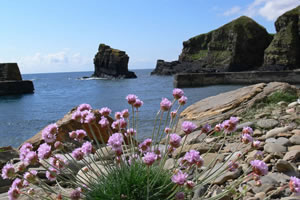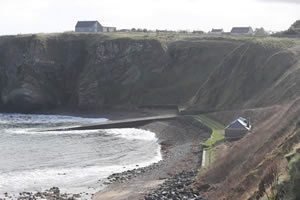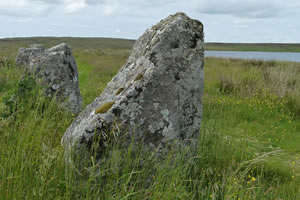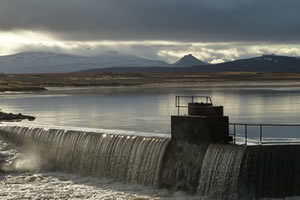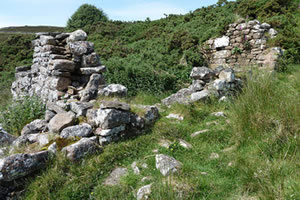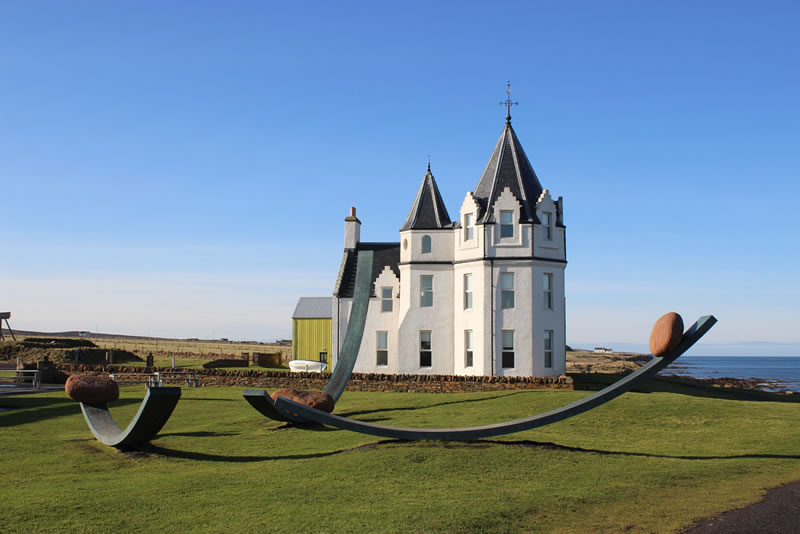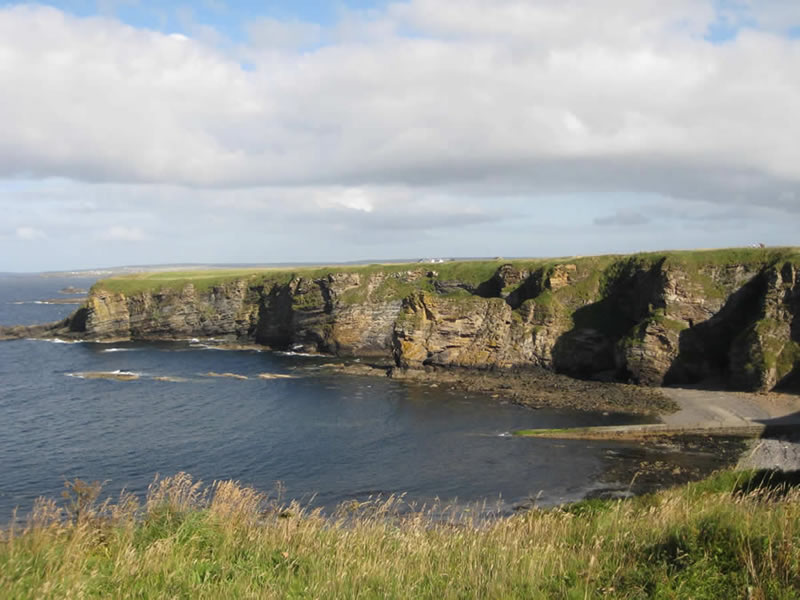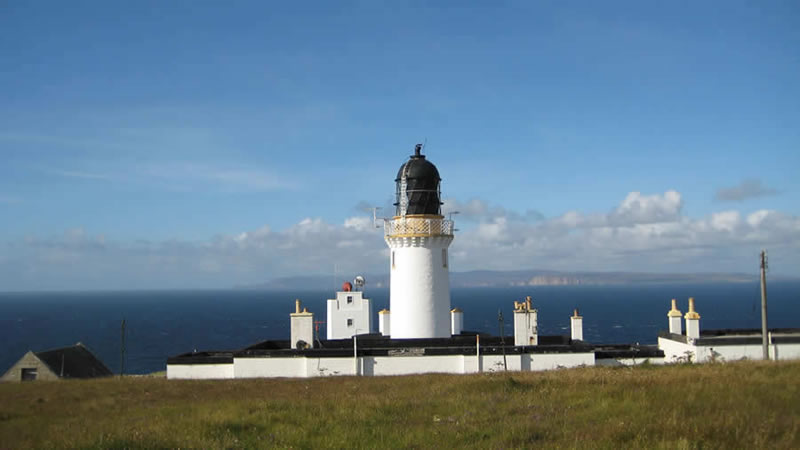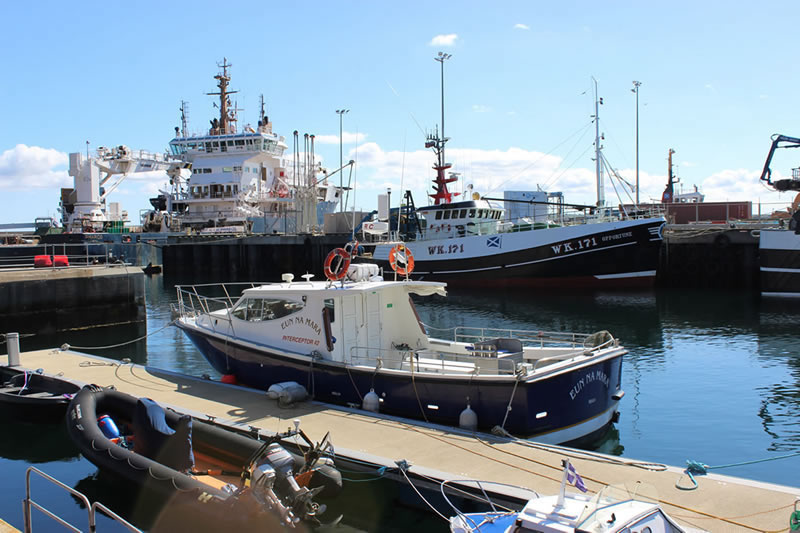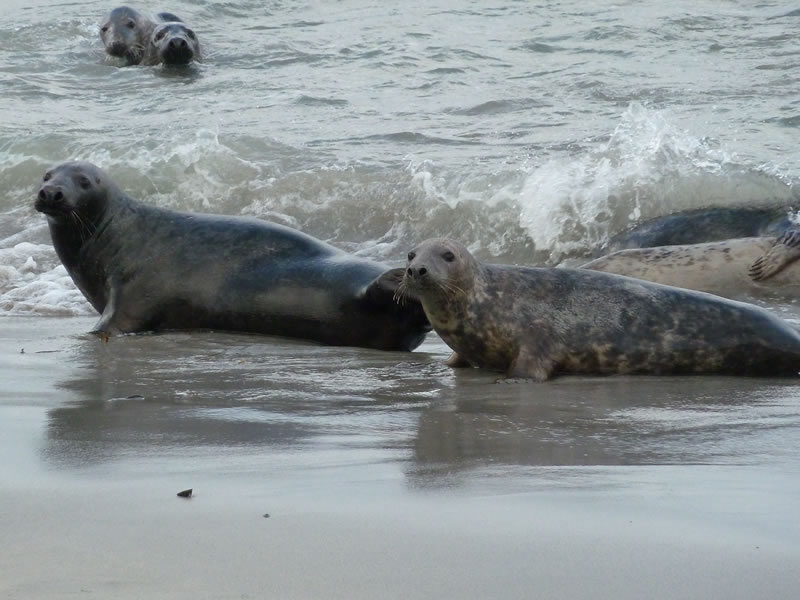Caithness and Sutherland
Caithness and Sutherland - Scotland and the Scottish Highlands
Welcome to the Scottish Highlands, where north of Inverness you will discover Caithness and Sutherland, two counties that covers an area from the east coast to the west of Highland Scotland. At the far top right corner of the Scottish Highlands is the county of Caithness, an ancient land lived in by the Picts and invaded by the Vikings. Explore the far north of Scotland in pictures and maps and plan your next visit to Scotland and the Highlands of Scotland.
When you visit Caithness and Sutherland you will discover stunning scenery making this area a perfect place for holidays for all the family. As the countryside and landscape varies from high rugged and remote mountain ranges and wild places, to crofting and farming communities and fishing towns and villages. The area has a fascinating range of old castles, remnants of pictish settlements, standing stones, and brochs along with the more recent effects of the clearances with abandoned villages and houses now long empty.
Whales and Dolphins around Caithness and Sutherland
For latest on whale and dolphin sightings - see Facebook group Caithness & Moray Firth Cetacean Sightings
Find a Hostel in Scotland | Scottish Hostels is an organisation of independent hostels, bunkhouses, backpackers and activity accommodation providers in Scotland - Scottish Hostels.
Hostelling Scotland. Hostelling Scotland is part of the Hostelling International network - Hostels
Northern Lights - You may well see the Aurora while in north of Scotland. One of the best ways to keep informed about the Aurora in Scotland is on the Facebook group.
Caithness and Sutherland in the Highlands of Scotland

Caithness has several outstanding sandy beaches including Sandside beach- Peedie Sands- Dunnet- Sannick near John O' Groats- Keiss beach
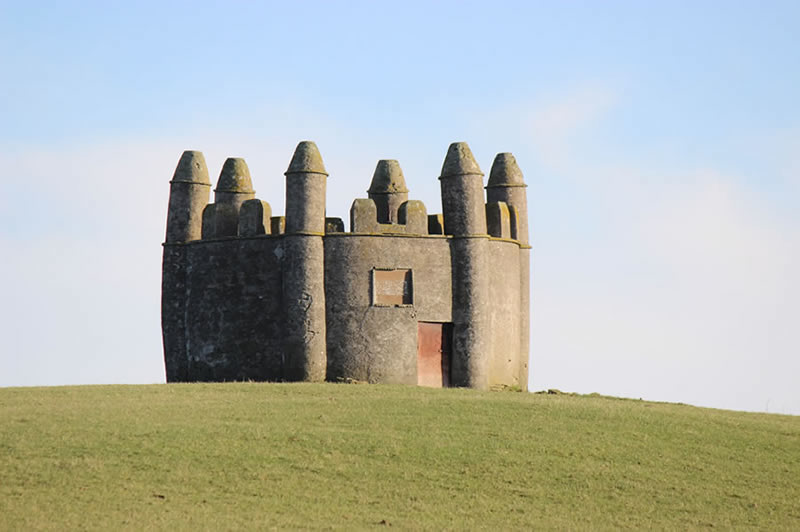
Harold's Tower- this distinctive building can be seen from several locations around Thurso and can be visited by taking the road from Thurso to John O’Groats and then taking the road toward the water treatment plant on the outskirts of the town. Harold’s Tower was built around 1780 and was possibly used as a mausoleum, some say it was a folly. It is in a location called Hill of Clairdon, being next to where Earl Harold (the younger) is supposed to have been killed and buried at the Battle of Clardon Hill in 1196, the Tower is said to have been built to commemorate Earl Harold’s death in battle. The Tower was built by Sir John Sinclair. More on Harold's Tower along with Highland Historic Environment record of the site.
Mary Ann's Cottage
Mary Ann’s cottage lies near Dunnet within sight of Dwarwick pier that is at the end of the single track road coming from Dunnet. This old traditional croft was lived in by Mary-Ann Calder up until 1990 when she moved into a residential home. She had lived and worked the croft with her husband most of her life. Since this time the croft has been looked after by a Heritage Trust and volunteers now provide a guided tour of the croft when the building is open to visitors during the summer. The building and contents have been preserved to show how the building was lived in, and the croft worked, until relatively recently. Pictures and location map for Mary-Ann's Cottage.
Castle Sinclair Girnigoe
Castle Sinclair Girnigoe is located about 3 miles north of Wick on the east coast of Caithness, Scotland. It is considered to be one of the earliest seats of Clan Sinclair. It comprises the ruins of two castles - the 15th-century Castle Girnigoe and the early 17th-century Castle Sinclair. Pictures, location map and more on the Castle.
Camster Cairns
Camster Cairns is a site of the Grey Cairns of Camster and the Round Cairn. The structures on this site are around 5,000 years old. The long cairns - known as the Grey Cairns of Camster were recreated in the 1980's, previously they were seen only as mounds in the moorland landscape.
Caithness and Sutherland has enough to keep most adventurers busy for several weeks and for people lucky to live in this area of Scotland the ever changing seasons and weather offer a new perspective on the area with every movement of the clouds and ray of sunshine. It is indeed a magical area and we you are very welcome you to visit the area and enjoy the beautiful scenery, historic buildings and some of the loveliest beaches in Britain.
Visit Caithness - Nybster and Nybster Broch, Hill O' Many Stanes (stones), Camster Cairns and the Grey Cairn has a small, 2 vehicle car park that is free for you to stop and look around this interesting artefact.

Dunnet beach, Wick harbour, Scrabster and other areas.
John O' Groats
John o' Groats is an iconic destination for people undertaking the NC 500 route around Highlands of Scotland as well as being the start / end point for many sponsored events raising money for charity. At John O’ Groats you can shop or enjoy a relaxing meal or quick snack at the cafés and hotel, watch out for passing killer whales, or take a day trip on the John O’ Groats ferry to Orkney.

Dunnet Bay, Dwarwick Pier and Mary Ann's Cottage
Castle of Mey near John O' Groats, Caithness.One of Scotland's best loved castles is the Castle of Mey, purchased by Queen Elizabeth The Queen Mother in 1952, who restored the castle and developed the walled gardens. It is now open to the public during spring and summer months. You can now stay within the castle grounds in the newly opened The Granary Lodge B&B where you can experience luxury while on the North Coast 500 route around the north of Scotland.
Brough near Dunnet Head, Caithness. Seals can usually be seen around the jetty area.
Dunnet Head
Dunnet Head Lighthouse - This is the most northerly point on the UK mainland. It is also a good location to watch out for whales.

Loch Watten - This loch is around 3 miles long and is full of brown trout. A fly fishing loch that is best fished from a boat.
Scrabster | Orkney Ferry, Marina, Boat Charter
Scrabster harbour and ferry port is an important part of Caithness with the ferry connecting Orkney to Caithness, while the harbour supports the fishing, offshore oil, gas and wind power industries. The marina is busy with local fishing and leisure boats and also has boats available for charter for sea fishing trips around Caithness and Orkney.
Visit Caithness | Quick links to pages about Caithness
Wick and the busy commercial Wick Harbour and marina, Walrus in Scotland, St John's Pool, Skirza, Scot Trader (ship), Havila Subsea at Scrabster Harbour, Eye of the Wind Sailing Ship at Scrabster, Sandside Beach overlooking Dounreay, pictures of seals near John O' Groats, Peedie Sands along from Dwarwick Pier, near Dunnet. Along the coastline of Caithness you will find historic villages including the small Fresgoe / Sandside harbour near Dounreay.
Nybster on the north east coast of Scotland for brochs, Nybster Broch - an Iron Age Atlantic roundhouse / broch at Nybster, Nybster old fishing harbour and monuments. Camster Cairns is also a fascinating place to visit to see depictions of burial cairns that were in Caithness thousands of years ago.
Scrabster, Mary Ann's Cottage, Yarrows Archaeological Trail, Yarrows, Whaligoe Steps, Staxigoe, St John's Loch, Sarclet, Noss Head Lighthouse, Lybster - a small east coast fishing village in Caithness with harbour, and hotels. Dwarwick pier looks over Dunnet Bay and the sandy beach area at Dunnet, as well as the start point for walking over to Peedie Sands beach, following the coastal path.
Laidhay croft museum - a 200 year old thatched longhouse, about crofting life in the Highlands. Keiss village in the north-east of Caithness with its old castle, ancient brochs, Keiss harbour and harbour house (available to rent for holidays and short breaks) along with the nearby Keiss beach.
Latheronwheel village and harbour, Hill O' Many Stanes reputed to be over 4,000 years old, Brough where you will often see seals near or on the jetty at Brough, Brough is on the road to near Dunnet Head, a popular location for whale watching. Sannick beach near John O' Groats has lovely views over towards Orkney.
Wildlife in the Scottish Highlands and the north of Scotland
Seals can be regularly seen around the coastline and occasionally on beaches - Pictures of seals in Caithness|Pictures of Seals|Seals Playing|Seals on the beach|Seal Colony|Seals
Interesting resources on the Internet about Caithness and Sutherland
Old maps of Caithness and Sutherland held on the British History Online website, developed by the Institute of Historical Research, University of London.

